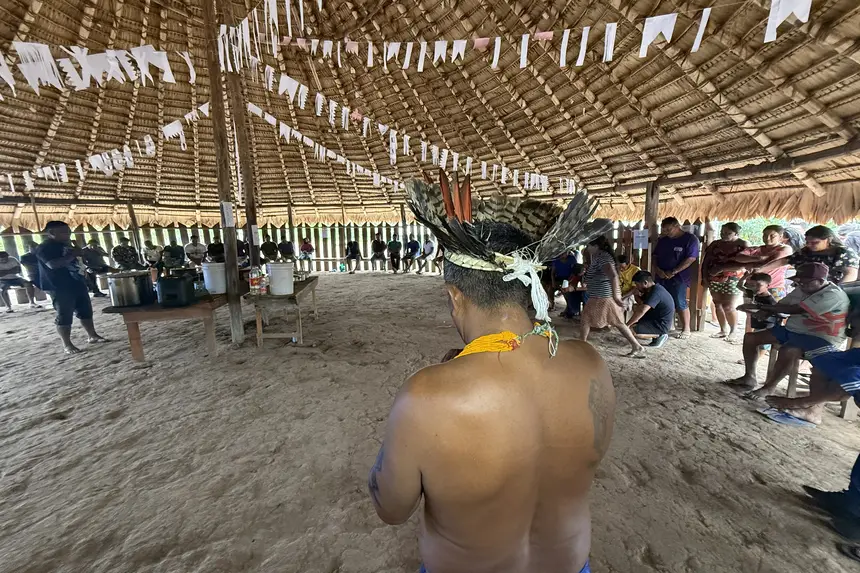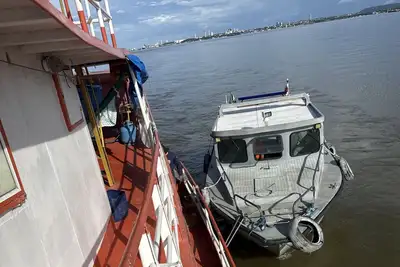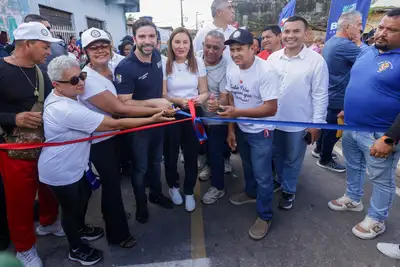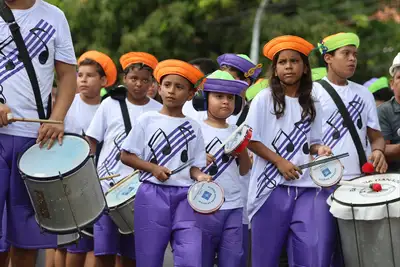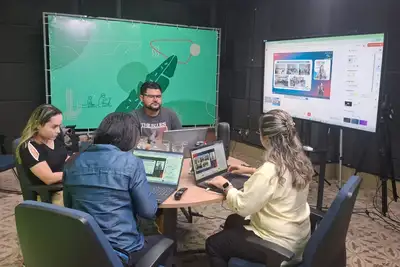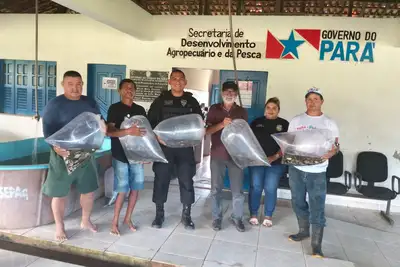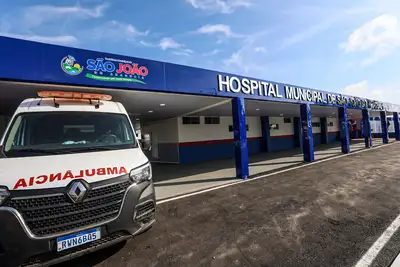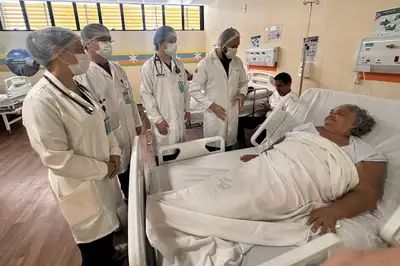Indigenous Peoples Advance in Dialogue on COP 30 in Caravan in Western Pará
The action of the Government of Pará, through Sepi, reinforces indigenous leadership in a key area for the climatic balance of the Amazon and the planet
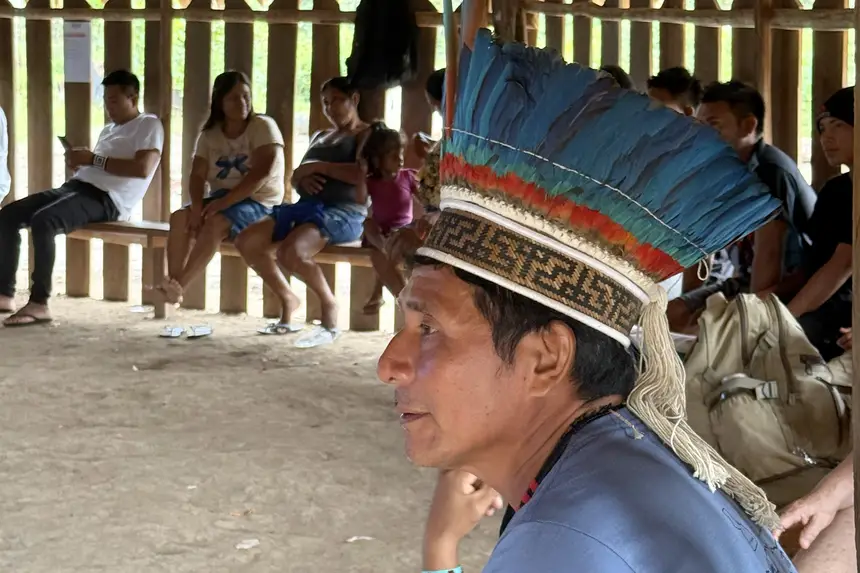
The Caravan of Indigenous Peoples Towards COP 30 intensified discussions and actions aimed at the participation of indigenous peoples in the 30th UN Conference on Climate Change (COP 30), which will be held in Belém next November. The second day of programming, which takes place in the Kaxuyana-Tunayana Indigenous Land, home to 16 indigenous peoples, highlighted the dialogue with indigenous communicators, addressing topics related to content production about the territory, the caravan, and the climate agenda.
The initiative values indigenous voices as agents of communication and political articulation. "It is impossible to talk about climate without listening to those who have lived and cared for this territory for centuries," emphasized Édson Xokokono Txikyana, chief of the Yawara village in the Mapuera River region.
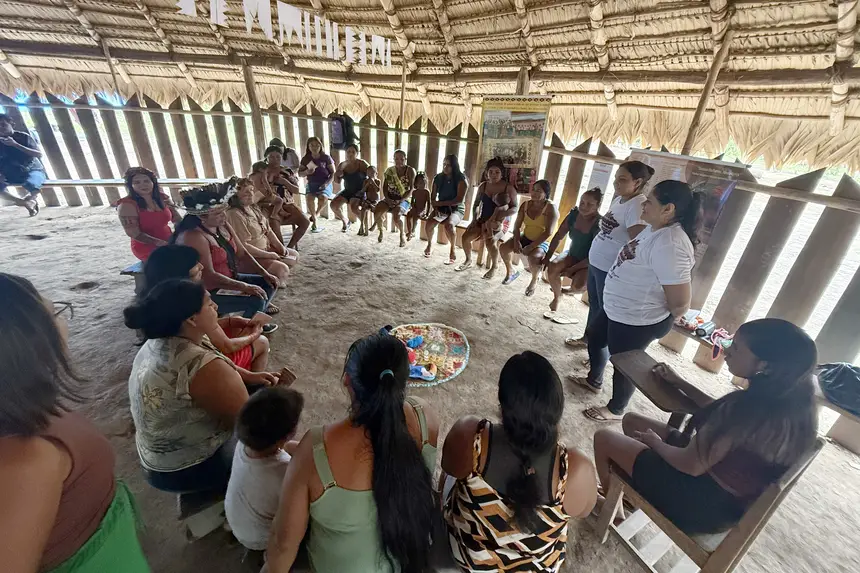
Guaranteed Presence - The Caravan, promoted by the Government of Pará through the State Secretariat for Indigenous Peoples (Sepi), conducts listening, training, and territorial articulation activities to ensure a qualified indigenous presence at COP 30, strengthening direct participation in decision-making spaces.
The actions were supported by Aikatuk (Indigenous Association of Kaxuyana, Tunayana, and Kahyana), which is one of the grassroots organizations of Fepipa (Federation of Indigenous Peoples of the State of Pará) in the ethnoregion of Oriximiná, in western Pará.
Scope - Fepipa coordinates over 60 indigenous peoples in Pará, representing around 80,000 people spread across more than 50 municipalities. With an active presence in the national indigenous movement, the Federation is a base of Coiab (Coordination of Indigenous Organizations of the Brazilian Amazon) and Apib (Articulation of Indigenous Peoples of Brazil), and acts as a channel of communication between indigenous peoples, the government, and society.
"We are here to build collectively. Indigenous peoples have proposals, knowledge, and the right to occupy global decision-making spaces on climate," stated the Secretary of State for Indigenous Peoples, Puyr Tembé.
The Caravan seeks to ensure that peoples from all over the State participate in building a fairer, more diverse, and forest-rooted COP 30, with proposals formulated from the realities and knowledge of the territories themselves.
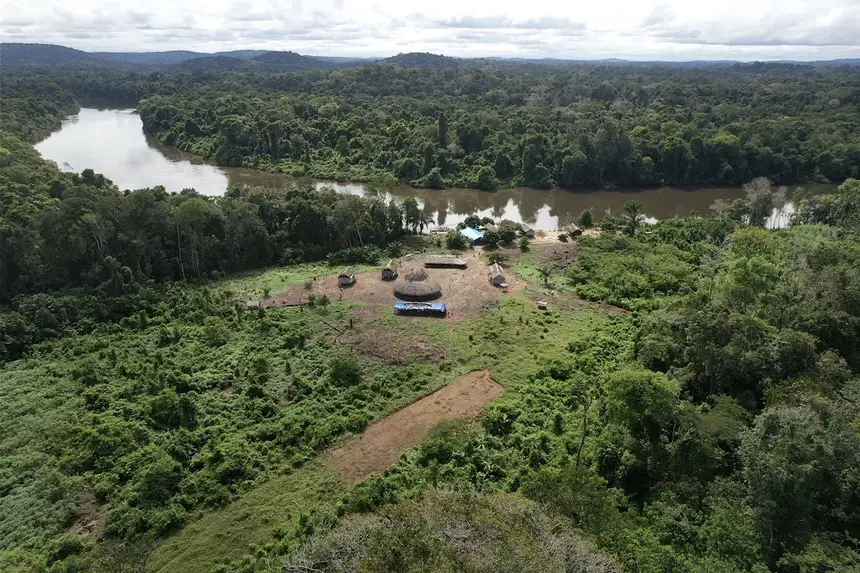
The programming of the second day of the Caravan also addressed the following topics:
• Territorial rights and conservation of the Amazon;
• Organization and accreditation for indigenous participation in COP 30;
• Environmental impacts on traditional ways of life;
• Valuing ancestral knowledge and governance strategies, and
• Indigenous worldviews in the face of the climate crisis.
The Caravan of Indigenous Peoples Towards COP 30 will travel through the eight indigenous ethnoregions of Pará:
1. Altamira
2. Belém-Guamá
3. Itaituba-Jacareacanga
4. Marabá-Tucuruí
5. Oriximiná
6. Novo Progresso
7. Redenção–São Félix do Xingu
8. Baixo Tapajós
Text: Jaelta Souza - Ascom/Sepi



